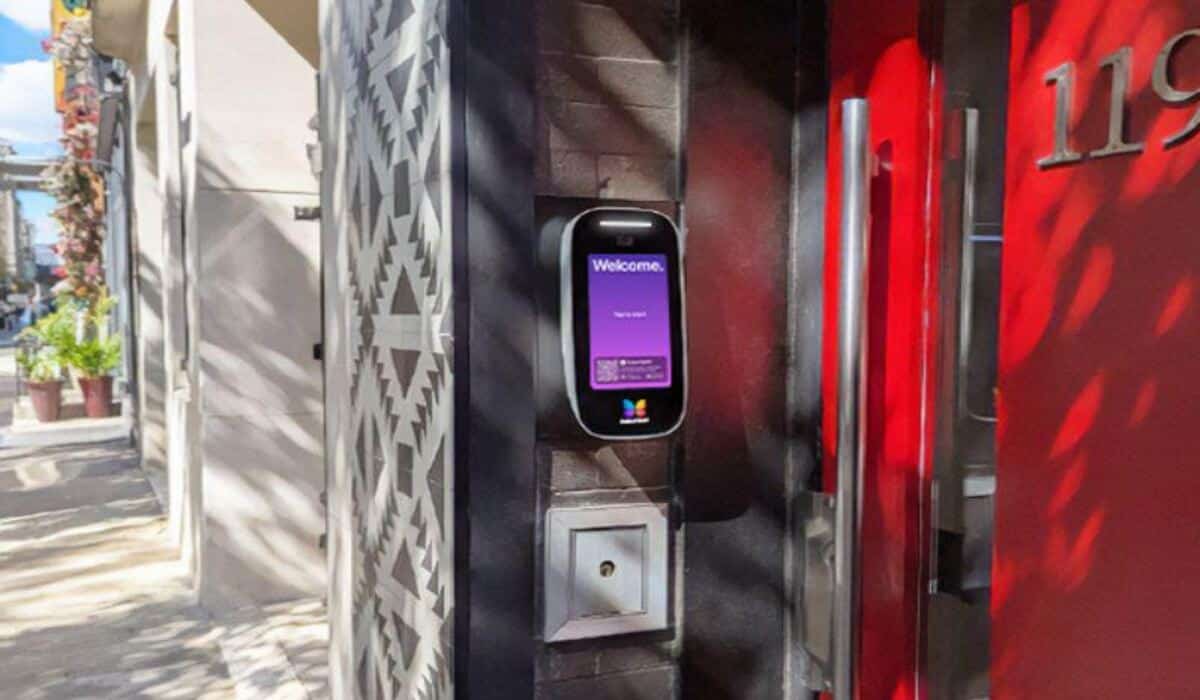Table of Contents
In today’s fast-paced business environment, security and efficiency are top priorities. That’s why more companies are turning to access control systems for commercial buildings. These modern systems go beyond traditional lock-and-key setups, providing businesses with flexible, scalable, and secure ways to manage who enters their properties.
Whether you manage a multi-tenant office building, a warehouse, or a coworking space, commercial access control can help you streamline operations and safeguard your assets. In this post, we’ll explore how access control works in commercial settings and highlight the key benefits for businesses.
What is access control in commercial buildings?
Access control refers to any system designed to regulate who can enter (or exit) a specific space, whether it’s an exterior door, an interior suite, or a restricted room like a server closet. In commercial buildings, these systems are often more complex and feature-rich than residential setups because they need to accommodate multiple users, zones, and entry points.
Common access control methods include:
- Key cards and fobs: Users scan a physical credential to unlock doors.
- Mobile access: Tenants and employees use smartphones to gain entry via Bluetooth or WiFi.
- Keypads or PIN codes: Users enter a numeric code to open a door.
- Biometric access: Scans fingerprints, facial features, or retina patterns for high-security areas.
- Cloud-based systems: Manage users, schedules, and permissions remotely from a central dashboard.
Benefits of access control for businesses
Implementing access control in your commercial building does more than protect the premises; it also enhances operational efficiency, improves tenant satisfaction, and supports compliance efforts. Let’s dive into the most impactful benefits:
1. Enhanced security
The primary reason businesses invest in access control is to protect people, property, and information. Unlike traditional keys, access control credentials can be easily issued, modified, or revoked as needed, reducing the risk of unauthorized access.
Key security features include:
- Audit trails that log who entered and when
- Temporary or scheduled access for vendors and maintenance staff
- Real-time alerts for unauthorized entry attempts or door-forced-open events
With these tools in place, property managers and business owners can respond quickly to potential threats and maintain a secure environment 24/7.
2. Streamlined access management
Managing keys for tenants and employees can be time-consuming and prone to error. Access control systems simplify this process by allowing you to manage everything digitally from a central platform.
How this benefits your business:
- Onboard new tenants or employees remotely
- Issue mobile credentials that can’t be lost or copied
- Set up custom access schedules by time, date, or user role
This centralized control makes it easy to manage multiple entry points across a large commercial facility or a multi-building campus.
3. Increased operational efficiency
Manual lock-and-key systems are inefficient, especially in busy commercial settings. With modern access control, businesses can automate daily operations and reduce the administrative burden on staff.
Efficiency perks include:
- No need to rekey doors after tenant turnover
- Integration with elevator controls and parking garages
- Contactless entry that speeds up foot traffic
The result? A smoother flow of people throughout the building, and more time for staff to focus on high-value tasks.
4. Better tenant and employee experience
Today’s tenants expect convenience. And in the era of hybrid work and flexible schedules, building access needs to be as seamless as possible. Access control systems deliver that flexibility by supporting mobile entry, self-guided tours, and visitor management.
This leads to:
- Improved tenant satisfaction and retention
- More autonomy for employees and building occupants
- Fewer calls to property managers for lost keys or access issues
Modern systems also support integrations with intercoms and smart lockers, offering even more convenience for tenants and staff.
5. Scalability for growing businesses
As your building or business expands, your access control system should grow with it. Cloud-based platforms are highly scalable, making it easy to add new doors, users, or locations without a major infrastructure overhaul.
Scalable systems offer:
- Multi-property management from a single dashboard
- Easy integration with third-party platforms like CRM or HR tools
- Flexible credential options for different user types
Conclusion
In conclusion, access control is a smart investment in your building’s future because it helps enhance security and improve the tenant experience by streamlining operations. What’s more, commercial access control systems deliver measurable benefits for property managers, business owners, and tenants alike.
If you’re considering access control for your building, look for a system that supports mobile credentials, cloud-based management, and easy integration with your existing infrastructure. The right solution will make your property more secure, efficient, and future-ready.


